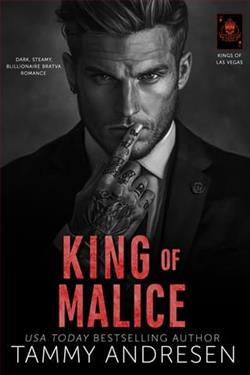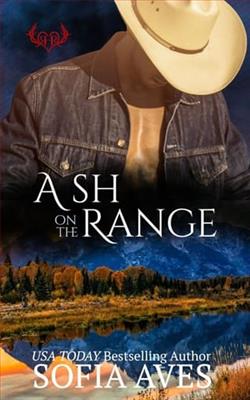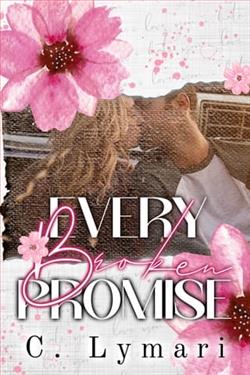Page 3 of The Quest for Excalibur
I chewed the blunt end of my pen again, as though doing so might help the creative flow, while composing what to write next. From over the partition wall came the sound of people chattering together in the hall as they pulled the trestle tables away from the sides in preparation for our evening meal. The scent of roasting meat wafted over, making my mouth water. No, I had to concentrate, or I’d never get this done.
Aelle brought ten keels with him, some crewed by his own men, some by reinforcements from their distant homelands, all hungry for the treasures he had promised. For gold from British churches and villas, for the taking of slaves, for our women, and for the blood of our brave warriors.
I was rather guessing this bit, but I considered poetic licence allowed me to assume what Aelle and his Saxon warriors had been thinking when they’d sailed up the River Thames on that golden, early autumn day.
Children’s laughter carried over the partition. Amhar and Archfedd must have gone to help Maia prepare for the evening meal. Medraut would never have wanted to help, so perhaps he’d departed to find the company of some of the older boys he so liked. I hoped so. Amhar was altogether too easily led by his bossy cousin, and although Archfedd was nothing like her brother, she tended, at eight, to trail along hopefully in their wake.
I gathered my thoughts again and redipped my pen in the ink.
When Einion’s scouts brought him news of how many keels had been drawn up on the riverbank near the mouth of the River Kennet, he lit beacon fires and sent a single man galloping to bring the news to the High King, at his stronghold of Din Cadan.
Drat it. Now I’d repeated myself in writing “bring the news.” One thing I’d never make was a writer. And I could hardly go back and scrape away that whole sentence. It would just have to stay. If archaeologists discovered my book one day, they weren’t going to be assessing it for its linguistic qualities, after all.
The most noble King Arthur–
Well, why not sing his praises? This was the sort of thing I imagined a writer would have put in an early medieval document, so why shouldn’t I? I could hardly include any of the personal things I felt about him. That would have sounded too weird. And besides which, I liked being flowery.
– on hearing the request, immediately gathered his fiercest and boldest warriors and set off eastward into the territory of King Einion. Among these warriors he numbered his bravest men– Merlin, his wise advisor; Cei, his brother and seneschal; Bedwyr, knowledgeable in all things concerning healing; Gwalchmei, Prince of Guotodin; Anwyll the warrior; Morfran of Linnuis; and Drustans of Cornubia. Also with the king rode his own oldest son, Llacheu, a young warrior of peerless bravery, beauty and great strength.
There, I’d given most of them a mention. I had to consider that this book might not make it through fifteen hundred years intact, and that only parts of it might survive, so at every opportunity I inserted as many details and names as I could. The other thing that might happen could be that it would just survive as a later copy, fragmented and meaningless if I didn’t constantly name the people and describe them. With the benefit of hindsight, I was trying to cover every eventuality.
The mighty force of the King, his combrogi, joined with the men of Caer Celemion to give battle against the Saxon horde. Together, they marched north from Einion’s town, through the forest to the shores of the River Tamesis where they met the Saxon raiders at a place called Tryfrwyd, a small settlement only a few miles to the east of the Kennet’s mouth, where the River Loddon runs north into the great river.
Maia’s voice carried over the wall, raised in admonition. “Amhar, Archfedd, that’s enough. Time for your own supper. Leave Cottia and her daughters to their work. Reaghan, off you go to your mother.”
More laughter. Their playmate was Cei’s daughter, Reaghan, a solid redhead a year older than Archfedd. A choice of companion I much preferred to Medraut.
“Now.” Maia sounded cross. “I shan’t ask you again. This way.” No doubt they’d been making a nuisance of themselves, made silly by too much sugar in the honey cakes. Hyperactivity in a time before anyone had ever heard of it. I smiled.
A distant door banged. Hopefully those two scamps were doing as they’d been told. Poor Maia. She loved them dearly, but sometimes they took advantage of that unquestioning love. I’d have to speak to them. Again.
I shifted a little and rubbed my feet together. However many precautions one took, no building in the Dark Ages could ever be draught-proof, and, down by my ankles, cold was percolating upwards. Maybe I’d ask Maia to stitch together a foot muff out of sheepskin. An attractive thought. She could wrap a hot stone and put it in there.
The day of the battle dawned bright and clear. As the Saxons approached, the mighty King Arthur, with his cavalry, held the high ground above the valley of the Loddon. The Saxons were on foot, as is their custom, horses not being carried on their ships. The High King charged, catching them between the higher ground and the river, trapped, as our brave British cavalry swept down upon them in the customary wedge formation, learned in the days of the Romans. Thus may a cavalry charge divide footsoldiers and defeat them more easily.
It was no use. I’d have to go and warm my hands over the brazier. Sitting still and writing in winter was not conducive to comfort. I’d be getting chilblains if I wasn’t careful. I padded over to the brazier and held my hands over the glowing embers, basking in the heat. My skin began to glow.
From the room my children shared with Maia came the sound of their voices, telling her they didn’t want cabbage again, followed by Maia reciting to them the reasons, learned from me, as to why they needed to eat green leafy vegetables every day. Not much variety in the Dark Ages in winter, so cabbage featured a lot in their diet. Mine too. There were a number of things you could do with it to add variety. However, unluckily for them, Maia thought just plain boiling it was best.
I smiled to myself as their protests faded. Did I have time to get this part of my book finished before it was time to eat? I’d try. Arthur was expected back in the next few days, so I needed to take advantage of his absence, and the opportunity to write.
The battle was long and fierce. Aelle is a brave leader and ferocious warrior. His men stood their ground as best they could, but the advantage of being on horseback eventually won the day for our British warriors. King Arthur and our valiant men beat the Saxons back bit by bit, until at last they reached the banks of the Tamesis River. Here, they found the Saxons’ ships drawn up, and sent fire arrows into them. The Saxons fought like savage demons, using the river water to put out the fires the arrows started. Their men crowded onto the ships and pushed off into the wide river, and our archers continued to pelt them with fire arrows as they rowed away downstream toward Londinium. The day was won, and Aelle will think twice before returning. Our losses were small. King Einion welcomed the High King and his men into Caer Celemion with great rejoicing and a feast.
Was that enough? Reading it over, it didn’t seem as though it was. Such a few words to convey what? Nothing about what a real battle was like. Putting it this way made it sound clinical and quick, as though my husband had easily put the enemy to flight.
It hadn’t been like that. On that crisp autumn day with a bright blue sky overhead, a day when no one could have imagined anything awful happening, the little valley of the Loddon had become a bloodbath. And afterwards was always the worst. With the still smoldering Saxon ships hightailing it down the river, aided by the current, what was left behind where once had been a peaceful farming settlement was like something from my worst nightmare. I’d never get used to the aftermath of a battle, no matter how long I lived in the fifth century.
But I couldn’t write that in my book. I didn’t have the words for it, nor the stomach to recall it in such detail. Seeing it in my head was bad enough, but putting it on paper would have given the memory solid reality. And I didn’t want that. History wouldn’t need that. History needed dates, specific spots for battles, and names. Bare facts. And bare facts I would give them.
I blew on the page to dry the ink. Then, slipping on my boots, I went through the door into the Great Hall to take my place at the high table. Dinner was served.
Chapter Three
The morning broughtheavy rain, so Medraut and Amhar’s trip down to the village never materialized, which pleased me. I couldn’t get over my mistrust of Morgawse’s son, no matter how hard I tried, and didn’t want my boy going out of the fortress with him, even with Llacheu to watch over them.
Whether my mistrust had to do with the legends from my old world, or just Medraut’s bossy, unkind personality, I couldn’t make up my mind. Probably a bit of both. For some reason, though, Amhar liked him, admired him even. And thanks to Morgawse’s departure to keep a much-needed eye on her husband, Medraut had been sleeping in my children’s chamber, under Maia’s supervision, forcing them ever closer together.
After a disgruntled argument, the boys trudged off to their lessons, shoulders slumped in resignation. No sooner had they departed, than my sister-in-law and best friend, Coventina, Cei’s wife, braved the wind and rain to scuttle through the mud to the hall, accompanied by Reaghan, her nine-year-old.















